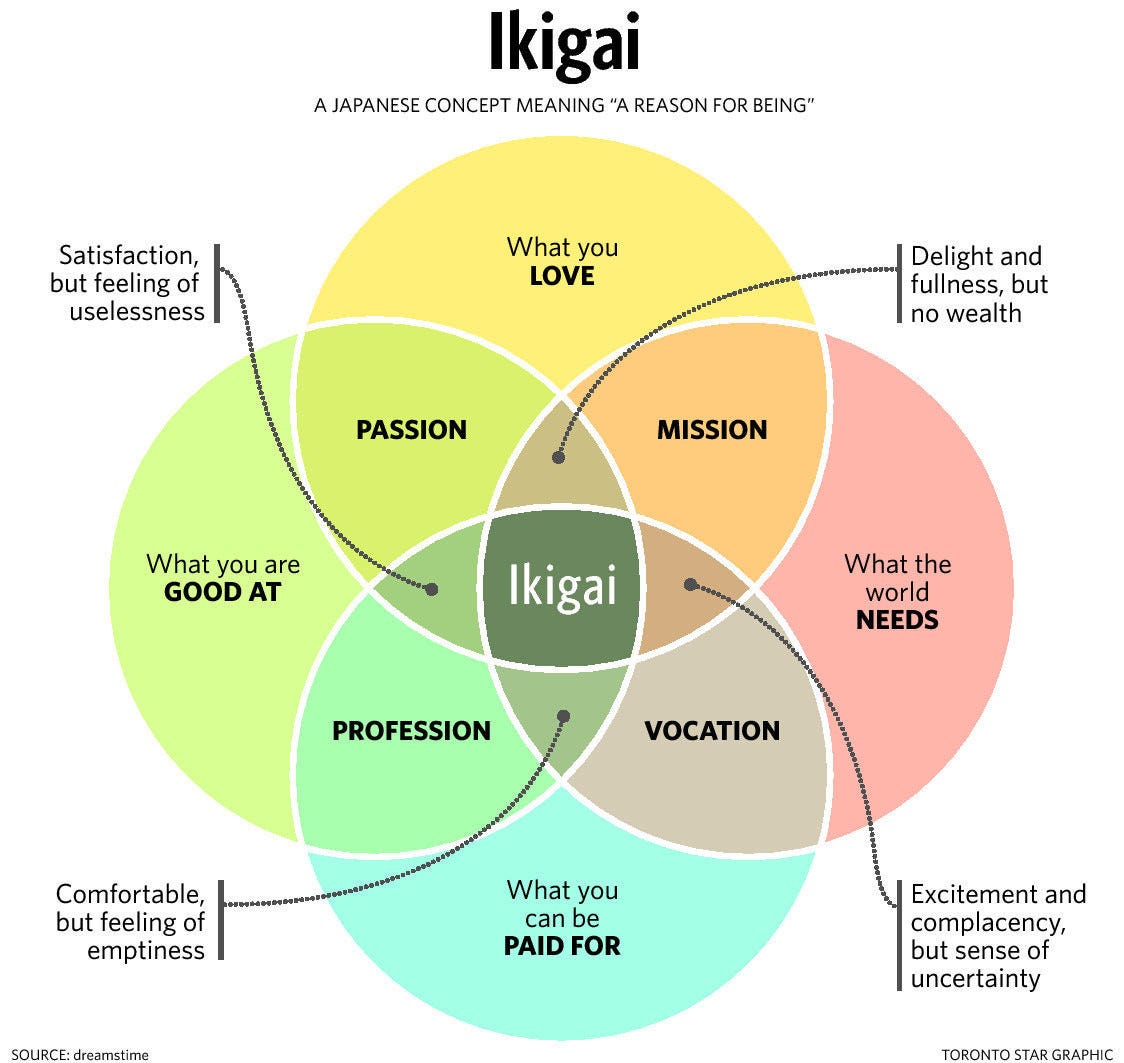Dark Horse: Purpose, Fulfillment, Success (and Ikigai)
I love learning. I am a big fan of Shane Parrish's blog, Farnum Street, and his podcast, The Knowledge Project. I was recently listening to the podcast episode, The "T.R.I.C.K." to Raising Successful People with journalist, educator, and Silicon Valley influencer, Esther Wojcicki. Wojcicki knows a little bit about raising successful kids. She raised three daughters who have each become famously successful as the CEO of YouTube, the Founder and CEO of 23andMe, and a top medical researcher.
The premise of the podcast was how to raise kind and fulfilled children. The podcast touched on education and family dynamics. It was fascinating. One of the books Wojcicki mentioned was Dark Horse, by Todd Rose. Rose leads the Dark Horse Project at Harvard. The Dark Horse Project is a long-term study of how women and men achieve success by harnessing their individuality.
The premise of the book, Dark Horse, is that current measures of success don't hold up in the emerging world of personalized education and business. Society currently measures success by wealth, power, and prestige. Unfortunately, one may achieve many of those things and remain unfulfilled. Commonly, we identify successful individuals by being like everyone else, only better. It is rare that individuals, successful only by standardized measures, change the world. Instead, many individuals that fundamentally alter our thinking are Dark Horses.
The Dark Horse model flips the traditional success on its head by having an individual first ask what motivates and fulfills them and then working toward a life/career that incorporates those goals. The Dark Horse Model is fundamentally inconsistent with our traditional way of thinking—the only way to succeed is through the conventional corporate (or academic) pathway. The authors argue that not only is the Dark Horse Model a necessity for the 21st century, it is a pathway to personal fulfillment and wellbeing.
The book, which I'm about 3/4 of the way through, reminded me of the Japanese concept of Ikigai, "the reason for being."

I admire Dark Horses, those individuals that take non-traditional routes to excellence. In my opinion, those are the individuals that truly change the world.
My prototypical Dark Horse is Steve Jobs. Walter Isaacson's biography of Jobs shows a uniquely windy road to the Apple cofounder's otherwordly success. Another less commonly known Dark Horse is John Boyd, the legendary tactician of the US Air Force. Boyd's story was captured in To Be or To Do.
The stories of Boyd and Jobs and other Dark Horses is that they stay authentic to themselves rather than conforming to the needs or expectations of others. To do so often takes Grit.
In addition to the concept of Grit, the field of Positive Psychology has a lot to say about fulfillment, success, and wellbeing. Martin Seligman, the father of Positive Psychology, touts the PERMA model in the pursuit of wellbeing. PERMA stands for Positive Emotion, Engagement, Relationships, Meaning and Purpose, and Accomplishments (Read more about the Theory of Well-being here). Martin Seligman, not unexpectedly, is a Dark Horse. Check out his lecture at Google Zeitgeist:
In addition to the overlap with Positive Psychology, I also am acutely aware of the similarities between the messages of Dark Horse and the lessons of one of my favorite thinkers, Sir Ken Robinson. In his book Elements, Sir Ken discusses how to reform education by embracing the unique talent of every individual. One of my favorite TED talks is Sir Ken advocating for personalized education (it is one of the most watched TED Talks).
Dark Horse is an enjoyable read. The message of the book resonated with me pretty profoundly. I hope you'll check it out.